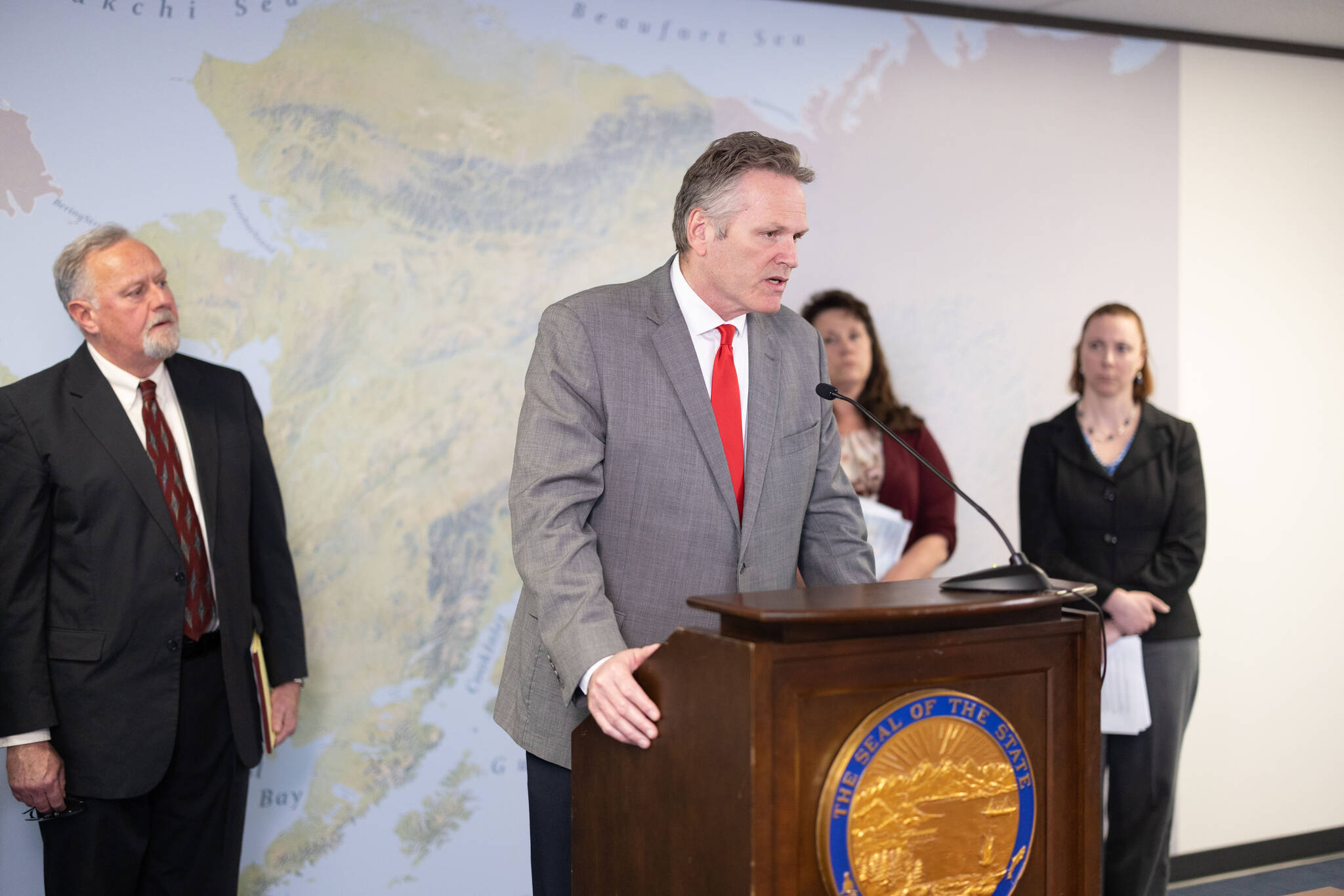Gov. Mike Dunleavy announced Tuesday new legal action the State of Alaska is taking as part of his “Unlocking Alaska Initiative,” which aims to assert state ownership over land submerged in navigable waters. The suit filed against the U.S. Department of the Interior on Tuesday specifically seeks to clear state titles on submerged lands in Lake Clark National Park’s Mulchatna River, Chilikadrotna River, Turquoise Lake and Twin Lakes.
Dunleavy on Tuesday said the State of Alaska is filing a new lawsuit asking state ownership of submerged lands in Lake Clark National Park and Preserve be recognized by the federal government. Additionally, Dunleavy said Tuesday that the State of Alaska sent a Notice of Trespass to the National Park Service for the “unauthorized construction” of a dock at Crescent Lake in Lake Clark National Park and Preserve.
That’s in addition to new cease and desist letters, which a release from Dunleavy’s office says were sent to the U.S. Forest Service for seeking to prohibit the use of motorized boats on Mendenhall Lake in the Tongass National Forest. There are also two bills currently moving through the Alaska Legislature that address the issue of submerged lands.
“We’re going to put the federal government on notice again,” Dunleavy said during a Tuesday press conference.
The phrase “submerged lands” refers to land underneath the ordinary high water mark, Alaska Department of Natural Resources Commissioner Corri Feige said during Tuesday’s press conference . Submerged lands in Alaska are found under about 800,000 miles of navigable rivers and about 30 million acres of navigable lakes.
“Alaska uses our lakes and rivers very differently than any other western state — than any other state in the nation,” Feige said. “These rivers and lakes are literally the arteries that connect our communities, and they facilitate commerce, and they facilitate commercial activity across the state.”
In asserting its ownership of the described navigable waters and submerged land, Dunleavy cited two U.S. Supreme Court rulings that came down in favor of John Sturgeon, an Alaska resident who was told he could not operate his hovercraft while moose hunting on the Nation River near Canada.
Examples of federal areas in Alaska where the state already owns the submerged land include the Kenai National Wildlife Refuge, which operates under the U.S. Fish and Wildlife Service, Kenai Fjords National Park, which operates under the National Park Service, and the Chugach National Forest, which operates under the U.S. Forest Service.
Dunleavy said additional information for people who are confronted on navigable waters that Alaska says it owns will be available on the state’s Department of Natural Resources website. When asked whether he was encouraging rule breaking, Dunleavy said it was actually federal agencies that are breaking the rules.
“We will be exercising our sovereignty over these lands and waters,” Dunleavy said. “If Alaskans are harassed, if Alaskans are bothered, we will intervene on their behalf in an effort to make sure that our people are free to use the state of Alaska’s lands and waters.”
Dunleavy’s full press conference can be viewed on the governor’s Facebook page.
Reach reporter Ashlyn O’Hara at ashlyn.ohara@peninsulaclarion.com.

